Search Results
Search
Filter results
Advanced Filters
Your search returned 280 Solutions
-
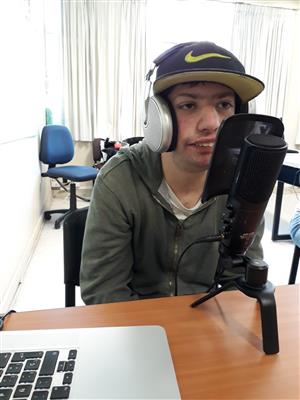
A three-year vocational training programme for students with intellectual disabilities
The "Diploma in Working Skills" is a three-year programme for people with learning difficulties to develop employment skills. Both professional and social competences are taught during the training. The programme takes place on the university campus and students have access to all extracurricular activities on site.
Andres Bello University, Socio-labour training programme in a university setting, Chile -
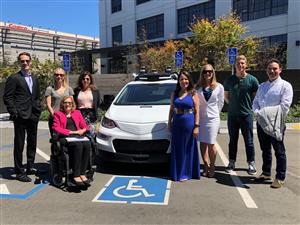
Government-led crowdsourcing platform to guide policymaking for inclusive workplaces
The US Department of Labor’s ePolicyWorks is a ‘virtual town hall’. Through an accessible online crowdsourcing tool, anyone can participate in national dialogues on employment and disability issues - a model that has already been adopted by other US agencies.
Department of Labor of the US, ePolicyWorks Initiative, United States of America -
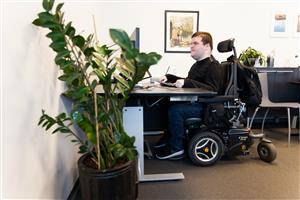
Collection of digital and technical solutions for universally designed workplaces
The Nordic Welfare Centre’s programme named Future of Working Life identifies and provides solutions in 18 technology areas that have the potential to improve the situation of people with disabilities in the labour market. The main target groups are employers, employees, and experts in the open labour market.
Nordic Welfare Centre, The Future of Working Life, Denmark -
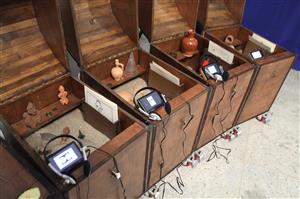
Training museum professionals in the Western Balkans to improve access to their buildings, collections and activities for persons with disabilities and enabling positive participation while challenging negative stereotypes.
Training for professionals working in museums are at the heart of the project. A information and education program is also provided to raise awareness for the persons with disabilities. Children and adults are welcomed as visitors and take part in various activities which enable them to experience their cultural heritage.
Cultural Heritage without Borders, Communicating art in the Western Balkans, Sweden -
Strengthening the independent living movement through training and free legal advice
The PROPEDIF programme is made up of three services: Promotion of Rights, Orientation and Judicial Assistance, and the Honduran Independent Living Movement (MOVIH). By the end of 2018, 192 people with disabilities will have received rights training, attended camps on independent living, and have received legal guidance.
PREPACE - Cerebral Palsy Rehabilitation Program, PROPEDIF, Honduras -
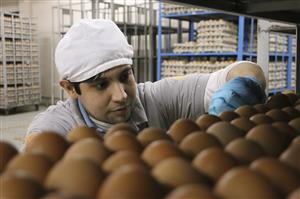
How to successfully apply for jobs in the public and private sector
Participants go through an evaluation process, which is summarised in an employment profile. Afterwards, training is recommended to complement existing interests and skills. Job placement is carried out using a special job-matching software, which is also available through the Ministry of Labour and private partner companies.
Saraki Foundation, Project “Effective Labour Inclusion”, Paraguay -
A “brokerage” service to provide short breaks
Activities Unlimited (AU) provides leisure activities for disabled children and young people, It is aimed at tackling barriers faced by parents and caregivers, who are seeking activities for their disabled children that are safe, fun, and appropriate, while simultaneously giving them regular breaks from their caring roles.
Scope - Disability Charity, United Kingdom -
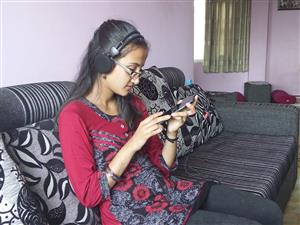
Accessible books for vision-impaired students using Android technology
As part of ELECTS (Enhancing Learning Capabilities of Students with Print and Visual Disabilities) ADRAD has adopted the playback function of Android devices and produced an orientation toolkit for easy usage. The aim is to enable students with visual impairments in Nepal to use free digital books based on DAISY and Epub.
Action on Disability Rights And Development-Nepal, Nepal -
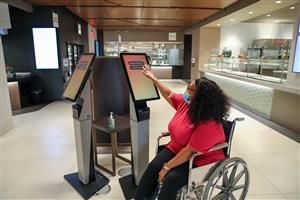
Global accessibility and inclusion programme of a multinational pharmaceutical company
The Access Lilly programme was initiated in 2020 by the multinational pharmaceutical company Eli Lilly to establish and implement a disability-friendly corporate culture throughout the company. The initial four work areas like accessibility, ICT and communications were expanded to include human resources and procurement.
Eli Lilly, Access Lilly, United States of America -
Creating smart accessible media using RoboBraille
RoboBraille is a free, award-winning service, capable of automatically converting documents into alternate formats. The goal of the project is to explore new smarter and easier methods to prepare and produce educational material in alternate formats using RoboBraille and other relevant free ICT tools.
Hilfsgemeinschaft - Austrian Association supporting the Blind and Visually Impaired, Austria